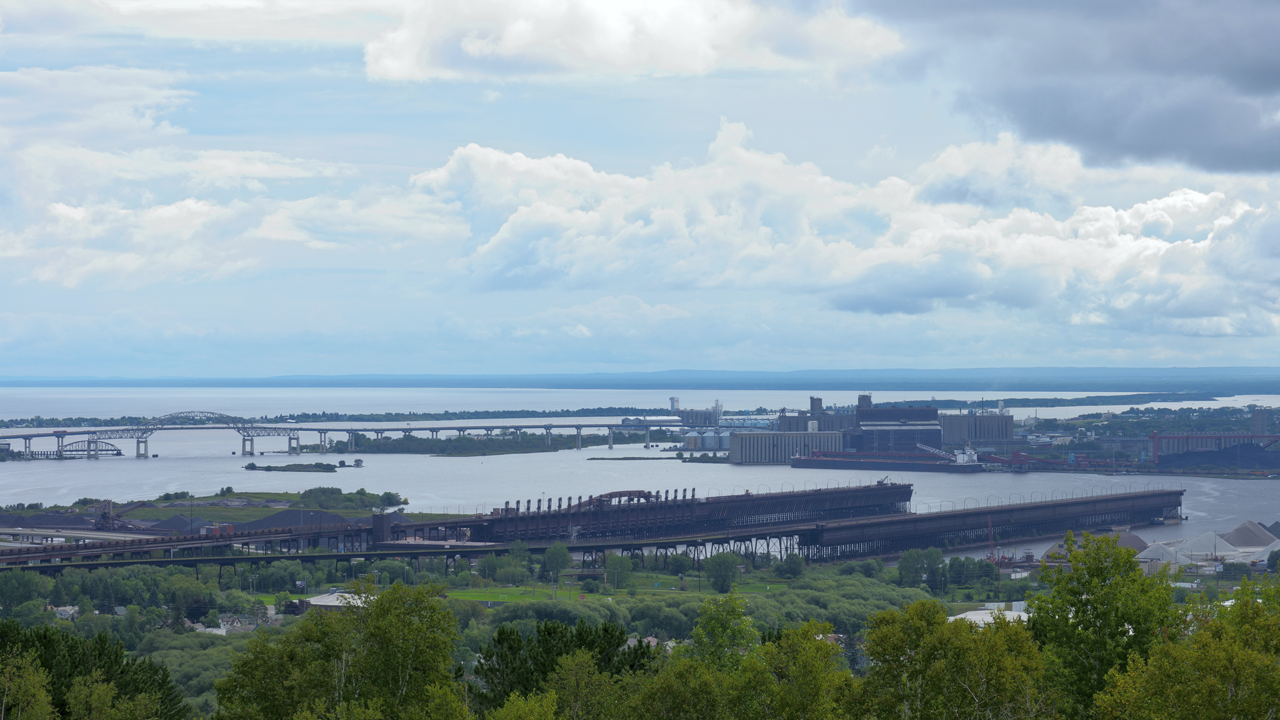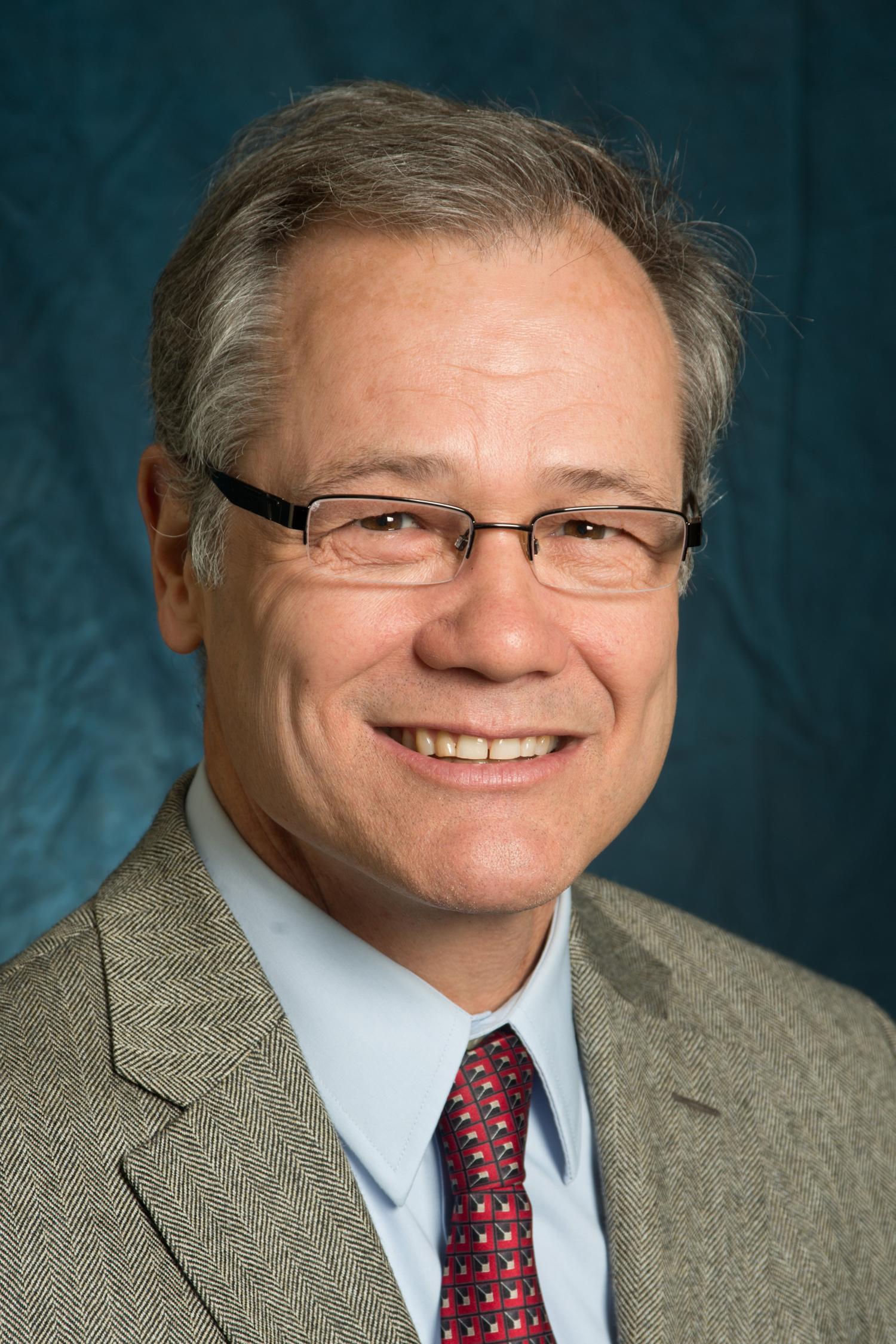
Rolf Weberg came to the University’s Natural Resources Research Institute (NRRI) in Duluth in the spring of 2014 following a successful 25-year career at DuPont in global research and development. His graduation from the University of Minnesota Duluth in 1982 led to a Ph.D. in inorganic chemistry from the University of Colorado, Boulder, in 1986 before he launched his career.
Weberg has tremendous enthusiasm for NRRI’s unique mission of sustainable natural resource management and economic development for resilient communities. And that enthusiasm is reaching out across the University of Minnesota, the state, even the globe. Fresh from a trip to Germany with Minnesota legislators to learn about new energy opportunities, Weberg effuses about NRRI’s opportunities.

It’s been a year since you left a career in industry to work in academia. What did your career teach you that we can learn from at the University of Minnesota?
One is that efficiency and sustainability is a competitive advantage – it is for my former employer, it is for Minnesota and for its citizens. If you can find a way to do things with less impact, that means less money spent dealing with waste. It’s just good business. If we’re not aggressive in pursuing that goal, we don’t have the right to participate in the new economy. Secondly, the kind of applied research that NRRI does gives the state an impressive return on investment. R&D is critical to business success and NRRI serves that function for many industries and small businesses, plus environmental research and help planning for the future. If we’re not anticipatory, we’re unprepared to compete in an increasingly complex world.
Some might see NRRI’s mission to drive economic growth and promote environmental sustainability as a two-headed horse pulling in opposite directions. Which one leads?
Neither. First, you have to accept the premise that the environment and the resources associated with it generate the economy, not the other way around. Second, those two drivers, environmental sustainability and economic growth, must be held in balance to support resilient communities. People will want to live where there’s a good environment and stable jobs, which in turn attracts the best and the brightest who will then invest in the environment and the cycle continues. It’s more like two horses pulling one wagon – the economies that are successful globally find a way to balance economic and environmental sustainability. NRRI and the University of Minnesota help to advance that conversation by providing basic understanding of those two drivers and translating that into deliverables for the state and the region.
What are some of the big economic challenges facing us today?
There are a number of challenges. First, we have to be serious about managing and preserving water resources. It is, obviously, essential to life and we can see escalating examples around the world where poor management decisions are causing major problems, both for the environment and regional economies. We also have to look at our other natural resources-based industries and find a way to make them more diversified, not what they were in the 1970s. Our wood products and iron ores need broader markets, higher on the value chain, in a way that is economically and environmentally sustainable. Minnesota’s natural resources generate a lot of money for northeastern Minnesota in tourism dollars and attract residents because of the clean environment. It’s another important economic driver.
Third – and this is huge – energy, energy, energy. Minnesota spends $18 billion each year on energy. We have some good laws on the books and we can do a better job at conserving, but we must continue to bring on renewable energy sources with storage capabilities in a significant way. Minnesota should be a leader in the new energy economy. Everything we do here is energy intensive and that challenges our economy. Finally, we have to get better at managing the grid to get the best use from renewable sources. We need to understand how energy management impacts resource management which then impacts environmental management– it’s all connected.
The biggest challenge for the state, and for the university, is formulating the right questions, pulling together the right skill sets and getting people to work together to solve big problems. It takes collaboration and courageous leadership across the board.
Does NRRI offer real solutions?
Yes. In fact, we’re close to opening the doors of a new energy research lab that will generate a lot of interest regionally and globally. We’ll be working to understand the best ways to use waste biomass as a renewable energy source on a large scale. That’s exciting. We’re serious about mining research — the economics, the choices for the future, remediation and more efficient extraction technologies that are easier on the environment. We’re actively engaged, on many fronts, in the forestry arena including harvesting and management concepts, species preservation and understanding climate change implications. In forest products, we’re testing technologies to increase the value and performance of our state’s wood supply and also as possibilities for fuels or chemicals. And we continue to work hand-in-glove with small businesses and entrepreneurs to make sure they get a strong start and grow smart. We also continue to benefit from some of the world’s top water scientists who wield a base of knowledge that impacts many NRRI deliverables.
At NRRI, we have an opportunity to help the university translate excellence in research into applied solutions for mankind. That’s an incredible motivator for me and the dedicated team I work with.